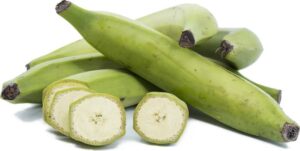Guinea corn also known as sorghum is a nutritious gluten-free cereal belonging to the Poaceae grass family.
It is one of the leading cereal crops worldwide and is the fifth-highest produced crop after maize, wheat, rice, and barley.
Guinea corn originated from Africa where it is a staple food in many homes and serves as the first-choice weaning food for infants. It is commonly called guinea corn or dawa in Nigeria and jowar in India.
This highly neglected crop is rich fiber and phenolic compounds both known to prevent heart diseases and metabolic disorders.
Guinea corn Nutrition
1 cup (192 grams) of raw sorghum grain provides:
- Calories: 632 kcal
- Protein: 20 grams (g)
- Fat: 7 g
- Carbohydrates: 138 g
- Dietary Fiber: 12 g
- Thiamine: 0.6 milligrams (mg)
- Riboflavin: 0.1 mg
- Pantothenic acid: 0.7 mg
- Vitamin B6: 0.8 mg
- Copper: 0.5 mg
- Iron: 6 mg
- Magnesium: 317 mg
- Phosphorus: 555 mg
- Potassium: 697 mg
- Zinc: 3 mg
- Calcium: 25 mg
- Manganese: 3 mg
Health Benefits of Sorghum
The health benefits of adding guinea corn to your diet include:
1. Provides essential nutrients and minerals
Sorghum is rich in iron and the B vitamins (thiamine, riboflavin, Panthothenic acid, etc.) which play an essential role in metabolism, neural development, skin, and hair health.
It is also a rich source of magnesium, potassium, phosphorus, and calcium – minerals that are important for bone formation, heart health, and over 600 biochemical reactions in your body.
Most importantly, sorghum (guinea corn) is a good source of protein as it provides as much protein as quinoa.
Related: 20 best Food recipes for babies 6 to 12 months
2. Prevents diabetes

Guinea corn (sorghum) whole grain is an excellent food for people with diabetes.
Sorghum has a relatively low starch digestibility. This is because the endosperm contains high levels of resistant and slowly digestible starch.
Additionally, sorghum contains condensed tannins that can react with starch and proteins to form bulk complexes in the gastrointestinal tract. These complexes formed in the digestive tract gives you a feeling of fullness or satiety and lowers glycemic response.
A study also revealed that consuming sorghum muffins influenced glucose and insulin levels, and improved glycemic response in healthy people.
3. Prevents cancer
The anticancer activity of sorghum may be attributed to the potent antioxidant activity of its phenolic compounds. Examples of these phenolic compounds are tannins and 3‐deoxyanthocyanidins.
Research has shown that sorghum tannins inhibit aromatase (an enzyme that is involved in breast cancer) and thus prevent the growth of cancer.
Tannins extracted from sorghum were also reported to be more effective against the growth of colon cancer cells than tannins from grape seed.
4. Prevents obesity
Guinea corn compounds form complexes with starch and protein in the digestive tract that provides a feeling of fullness or satiety and reduces overeating.
A recent study showed that healthy people who consumed biscuits made of sorghum whole grain reported higher satiety and lower hunger ratings than wheat biscuits.
Related: 50 African foods to help you lose weight.
5. Provides anti-inflammatory activity
Long‐term oxidative stress can lead to chronic inflammation and consequently can result in various chronic diseases.
During inflammation, a number of pro‐inflammatory compounds such as interleukin (IL), cyclooxygenase (COX)‐2, tumor necrosis factor (TNF)‐α, and prostaglandin E2 (PG‐E2) are generated.
Many phenolic compounds from sorghum grain have been demonstrated to inhibit the production of these pro‐inflammatory compounds.
6. Provides antioxidant activity
Oxidative stress which is an imbalance of antioxidants and free radicals is a leading cause of most chronic diseases.
Adding sorghum to your diet promotes health and prevents most chronic diseases.
7. Prevents heart diseases
Guinea corn (sorghum) grains contain fat (lipids) that have been shown to promote cardiovascular health by regulating the absorption, excretion, and synthesis of cholesterol.
A recent study showed that incorporating sorghum lipids into the diet of hamsters (rats) increased the excretion of cholesterol and its metabolites, and thus reduced the plasma and liver cholesterol levels in hamsters.
The whole grain also contains antioxidants that fight cardiovascular diseases.
8. Protects against celiac disease
Unlike other major gluten‐containing cereal crops such as wheat and barley, sorghum is considered to be gluten-free and is a promising and safe alternative food source for people with celiac disease.
9. Prevents constipation
The high dietary fiber in guinea corn helps in the proper functioning of the digestive system.
Additionally, a diet rich in dietary fiber helps to prevent cardiovascular diseases and colon cancer.
Related: 15 African foods high in dietary fiber.
10. Protects bone health
Sorghum is rich in calcium and magnesium, two important minerals essential for strong bones.
Magnesium stimulates the absorption of calcium. A deficiency in calcium or magnesium leads to osteoporosis and arthritis.
Culinary uses
Sorghum is versatile and easy to add to a wealth of recipes.
The following are some ways you can enjoy it:
- Baby weaning food (ogi or pap): You can ferment guinea corn with pearl millet and maize to make a healthy weaning food for infants.
- Replace rice or quinoa. You can cook whole grain and pearled sorghum similarly to how you cook rice and quinoa.
- Sorghum flour. Thanks to its neutral flavor and light color, it can easily serve as a gluten-free flour in most recipes. Simply use it alone or swap it in at a 1:1 ratio to make pancakes, roti, tortillas, biscuits, and bread.
- Popped. Add the grains to a heated pan and watch them pop like popcorn. Add seasonings for extra flavor.
- Syrup. Sorghum syrup is commonly added to processed foods as a natural sweetener or an alternative to molasses (sugar cane syrup).
- Beer: In Nigeria and other parts of Africa, sorghum is used to make a fermented alcohol beverage called “burukutu”.
The bottom line
Guinea corn (sorghum) is a highly nutritious grain that is good for you and your baby.
It is rich in carbs, protein, fats, minerals, dietary fiber, and vitamins. It is likewise an excellent source of antioxidants and bioactive phenolic compounds that other foods may not offer.
What’s more, it is a healthy gluten-free weaning food for infants and convalescents.
If you’re looking for a nutritious grain to try for yourself or your baby, give sorghum a try.
Sources
- Sorghum grain nutrition profile – FoodData Central (USDA)
- Sorghum Grain: From Genotype, Nutrition, and Phenolic Profile to Its Health Benefits and Food Applications
- Sorghum: Origin and Nutrition- Healthline
Get new free and exclusive health tips delivered straight to your inbox!




